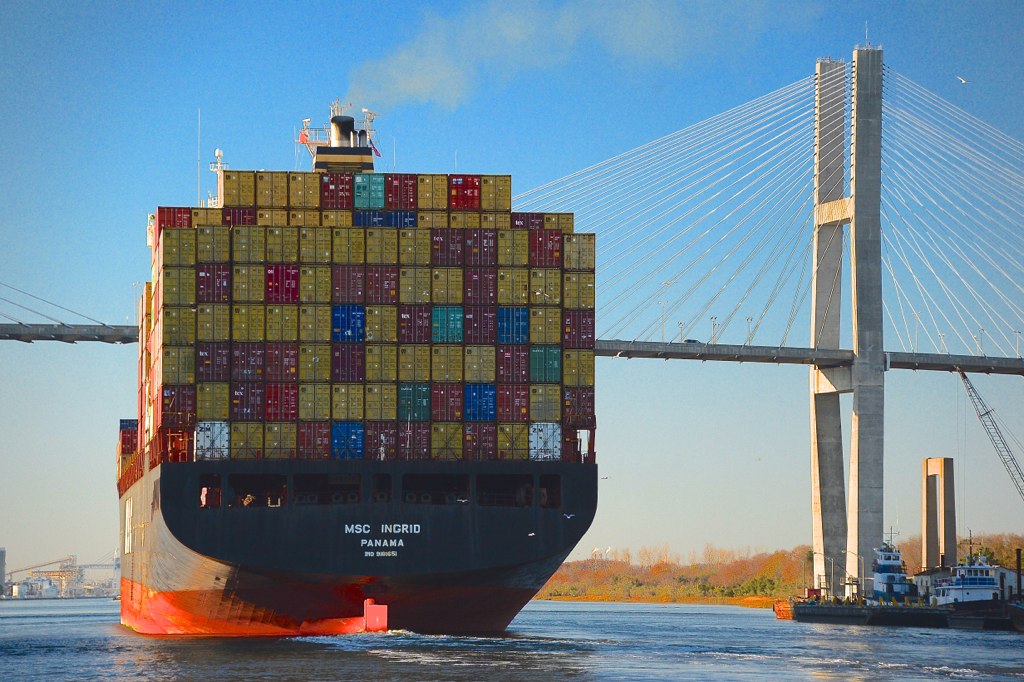From pv magazine USA
Longi Green Energy filed a report with the Shanghai Stock Exchange that said U.S. Customs and Border Protection (CBP) had detained a total of 40.31 MW of modules it exported to the United States between Oct. 28 and Nov. 3. The border action was taken under a Withhold Release Order (WRO) issued by CBP in late June.
Longi said the detained modules accounted for roughly 1.59% of its total 2020 export sales volume to the U.S. market. It said it established a tracing protocol last year and would be able to prove that the detained modules used silicon that meets U.S. requirements. It also said that module shipment to the U.S. are proceeding normally.
“The U.S. Customs WRO has not had a significant adverse impact on the company’s operations for the time being,” the Longi said. “The company will continue to monitor and evaluate the impact of the WRO on the company’s U.S. shipments.”
It did not respond to a reporter’s request for an additional statement.
The Longi filing with the Shanghai Stock Exchange was careful not to mention allegations of forced labor in the silicon supply chain, which is the focus of the WRO. It mentioned, instead, unrelated tariffs dating back to 2011 and said that the recent detention was in response to what it referred to as “the Temporary Detention Order.”
Beijing has long denied that any forced labor exists in China. It has passed legislation that penalizes companies for cooperating with U.S. and other governments’ efforts to ban imports of goods produced with forced labor. In the United States, laws that are intended to combat forced labor date back to the 1930s.
Longi said that starting in the second half of 2020 it had established and improved management measures to respond to “temporary detention orders (WRO),” including “product traceability and system construction, external agency certification, and supplier management.”
On June 24, the Biden administration ordered a ban on U.S. imports from Chinese-based Hoshine Silicon Industry Co. over forced labor allegations. The U.S. Commerce Department separately restricted exports to Hoshine, three other Chinese companies, and what it said is the paramilitary Xinjiang Production and Construction Corps (XPCC), saying they were involved with the forced labor of Uighurs and other Muslim minority groups in Xinjiang.
The three other companies added to the U.S. economic list included Xinjiang Daqo New Energy, Xinjiang East Hope Nonferrous Metals, and Xinjiang GCL New Energy Material.
Industry analysts believe that Hoshine provides around 60% of the world’s metallurgical grade silicon (MG-Si) used in the solar industry. The silicon provides feedstock material used in the polysilicon refining process.
In August, reports first emerged that CBP was detaining solar modules that they suspected contained material subject to the WRO. Reports said that JinkoSolar had around 100 MW of product detained by border agents. Canadian Solar was also said to have had four testing samples detained, and Trina Solar was reported as having had six testing samples detained in July.
This content is protected by copyright and may not be reused. If you want to cooperate with us and would like to reuse some of our content, please contact: editors@pv-magazine.com.




By submitting this form you agree to pv magazine using your data for the purposes of publishing your comment.
Your personal data will only be disclosed or otherwise transmitted to third parties for the purposes of spam filtering or if this is necessary for technical maintenance of the website. Any other transfer to third parties will not take place unless this is justified on the basis of applicable data protection regulations or if pv magazine is legally obliged to do so.
You may revoke this consent at any time with effect for the future, in which case your personal data will be deleted immediately. Otherwise, your data will be deleted if pv magazine has processed your request or the purpose of data storage is fulfilled.
Further information on data privacy can be found in our Data Protection Policy.